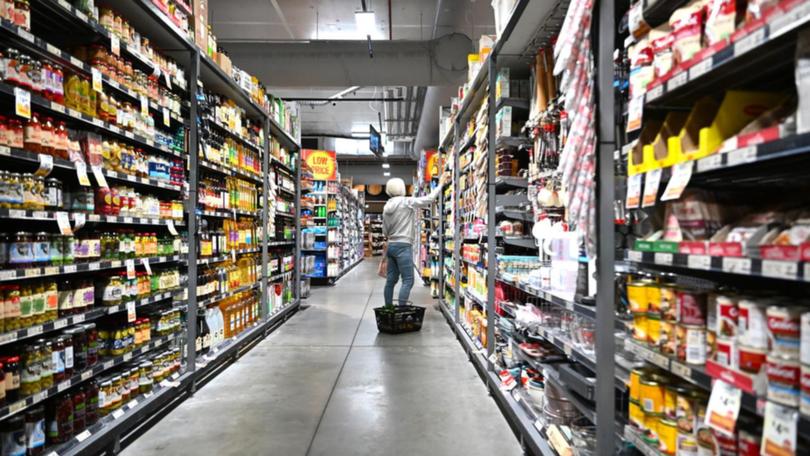How the Coles and Woolworths duopoly took over the Australian supermarket sector
Despite mounting scrutiny, Aussies struggle to find grocery shopping alternatives thanks to the stranglehold Coles and Woolworths have on the market. So how did we get here?

Despite being two of the most controversial retailers in the country, Australian shoppers are hard-pressed to find any other grocery retailer to fill their pantries each week than Coles or Woolworths.
The country is caught in a bind thanks to the infamous “Colesworth” duopoly that has a stranglehold on the supermarket sector.
Once again, the sharp eye of public scrutiny has turned to Coles and Woolworths after the Australian Competition and Consumer Commission (ACCC) accused the grocery behemoths of ripping off customers with misleading discounts on hundreds of products.
Sign up to The Nightly's newsletters.
Get the first look at the digital newspaper, curated daily stories and breaking headlines delivered to your inbox.
By continuing you agree to our Terms and Privacy Policy.The alleged sham discount scheme is just the latest sour cherry on top of a bruising year for the supermarket giants, which have fallen sharply out of public favour amid allegations of profiteering in the cost of living crisis, price gouging and stifling competition.
And yet, Australians are stuck with few other grocery shops (if any) but them. Indeed, the allegations are, arguably, a product of the marketplace they exist in.
How did we get into this situation?
Australia’s grocery retail sector is one of the most concentrated in the world, but this was not always the case.
The first grocery chains emerged across the country in the late 19th and early 20th centuries, offering a variety of goods in one shop.
When the names Coles and Woolworths entered the fray in 1914 and 1924, respectively, they weren’t even in the grocery game.
But in the 1950s, the pair decided to pivot from selling general merchandise to food and they started to buy up their competition — charting a course for massive growth.
Names like Action, Deson, Cash & Carry, Bi-Lo, Rainbow, Tuckerbag, Jewel, Flemings, Foodland, and Newmart held off the hungry supers, and kept the pair largely in line, for decades. But they, too, were eventually gobbled up.
By the 1980s, despite the acquisitions, Coles and Woolworths only had about a 40 per cent share of the grocery market. Today, they have about 70 per cent of the market share — which is even higher in some areas.
What about IGA and FoodWorks? And Aldi?
To survive Colesworths’ buying spree, independent supermarkets either bought each other or merged in a bid to boost their strength in the distribution market.
In 1992 there were eight grocery distributors but by the mid-2000s there was just one: IGA’s distributor Metcash.
Franklins was considered by the consumer watchdog “one of the big three supermarket chains” in 2000; but it quickly tumbled in 2001 when its Hong Kong owners pulled out and left its 104 stores to be sold to Woolworths and Coles in a 2:1 split.
Some of Franklins’ NSW stores that survived were bought by Metcash (which owns IGA supermarkets) in 2010 in a $215m deal.
In 2005, Metcash launched a successful near-$3 billion takeover of Foodland, which operated a string of other supermarkets, including Action in Queensland and NSW. Sixty of its 81 supermarkets were sold to Metcash and the remainder to Woolworths.
Coles and Woolworths have tried (and failed) to get their paws on IGA stores over the years, too, blocked at almost every turn by the ACCC.
A number of other brands — Buy Rite, Cut Price, Rite-Way, Banana Joe’s and Tuckerbag — were bought by FoodWorks, which trades by more than 500 stores around the country.
Meanwhile, German retailer Aldi was hoped to be the next great competitor to rein in the Colesworth duopoly. And although it has consistently proven to be more cost-effective — saving shoppers as much as $17 on their dockets — it still only captures a 10 per cent market share.
Could it be fixed?
Politicians from all sides have been piling the pressure on the supermarket duopoly in recent months.
Nationals leader David Littleproud has called for Coles and Woolworths to sell off their stores to competitors; while the Greens have moved for the ACCC to be given greater powers to punish supermarkets — and other big businesses — that rip off customers.
The Greens have also led a senate inquiry into price gouging.
Although Mr Littleproud urged the federal government to “get on with it” back in February, Labor was not entirely convinced that breaking the duopoly would end well.
Assistant Competition Minister Andrew Leigh said in April the government was concerned breaking the giants could push food prices higher and harm job security for workers.
On Tuesday, Prime Minister Anthony Albanese conceded that governments had been too soft on supermarkets for too long but said Coalition-backed divestiture laws were not the solution.
However, he warned the supermarkets, if found guilty of ripping off customers with sham discounts, would cop more than a “slap on the wrist”.
